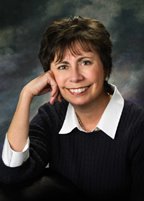When my parents were born in Butte in 1916, the population of the city was over 100,000. Mines were booming, and those who survived working underground in the deep levels, lived in boarding houses that clung to the side of the hill. Mining barons built fashionable mansions on the "West Side." Like most mining camps, men came from all over the world to find work. Some came to escape their pasts, others merely followed restless hearts seeking adventure. I have perused the U.S. Census that listed my dad as "baby boy Murphy." The census made note of each resident’s country of birth and the language spoken at home. Very few had been born in this country, and most spoke a language other than English. Butte had a reputation as a rough town, but there was also unusual unity. Curiousity was the glue that made diversity work. As each group celebrated their holidays, they could count on their friends and neighbors to join in. Everyone learned what types of names went with each ethnic group, and there was a good deal of respect that went along with the expected ribbing.
The town was much more homogenized when I was born inthe ‘50s, but we still enjoyed finding out about the ethnic background of friends. In the three years that I was in high school, the student body presidents of Butte High were an African-American girl named Rachel, a Mormon guy named Jim, and my classmate, a Jewish guy named Earl. To me, that was Butte. My hometown was the embodiment of "the melting pot." We didn’t have to encourage diversity, we just were.
We often had guests around the big table who were from far away countries. My dad had a friend from India named Eddie Fern. He was studying for the priesthood, and would sing to us after dinner. A Mr. Chung was an exchange engineer from Korea. When teenage boys came from Cuba as refugees, they bravely practiced their English with us. Mom and Dad hosted many visitors, and Dad gave tours of his beloved city to people from around the world.
Last weekend, my own big table was surrounded. There were the usual suspects: Lenny, of course, and my sister Jeanette. Our boys drifted in and out. Brutus Roberge (who is French, Italian, and African-American) stopped by. My cousin Teresa Kelley-Brooks and her daughter Maeve were there, along with my cousin Charlie Larson, his wife Janette, who is first generation Korean-American, and their baby daughter Charlotte. Each of us spoke American English as our first language, but throughout the evening there were smatterings of Italian, Gaelic, Swedish, Spanish, Hawaiian, Korean, and French. Like most Americans today, diversity is within the family.
In the Kelley tradition, we began to sing. Lenny brought out his accordion and serenaded us in Italian. I joined him in a duet of a Hawaiian hymn. Charlie sang "Danny Boy" in a pure tenor, then Teresa and Maeve "battered the floor" with a jig. I knew my sister would protest if I asked her to sing, so I just launched into an Australian song that we used to warble as little girls while we did dishes. We instantly found our harmony, and harmony was the theme of the night.
Lenny said that we should rewrite the poem by Emma Lazarus that is inscribed at the foot of the Statue of Liberty to read something like this:


No comments:
Post a Comment